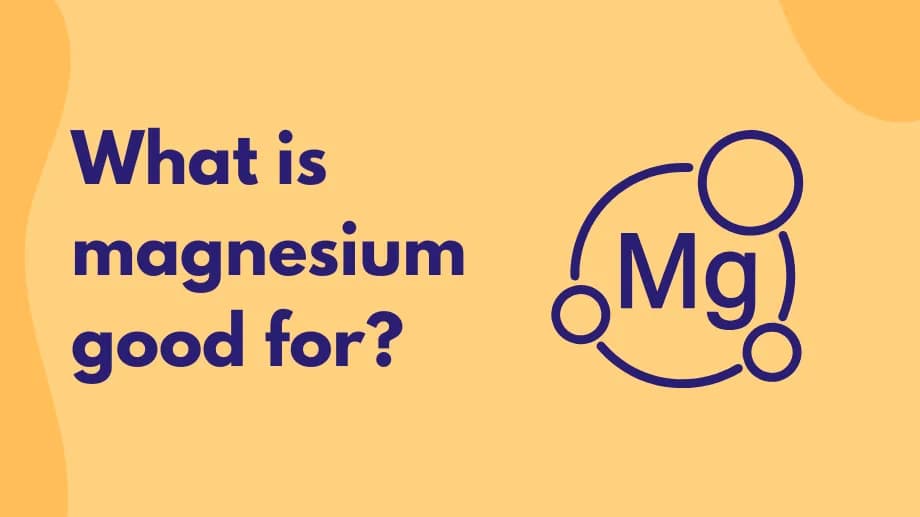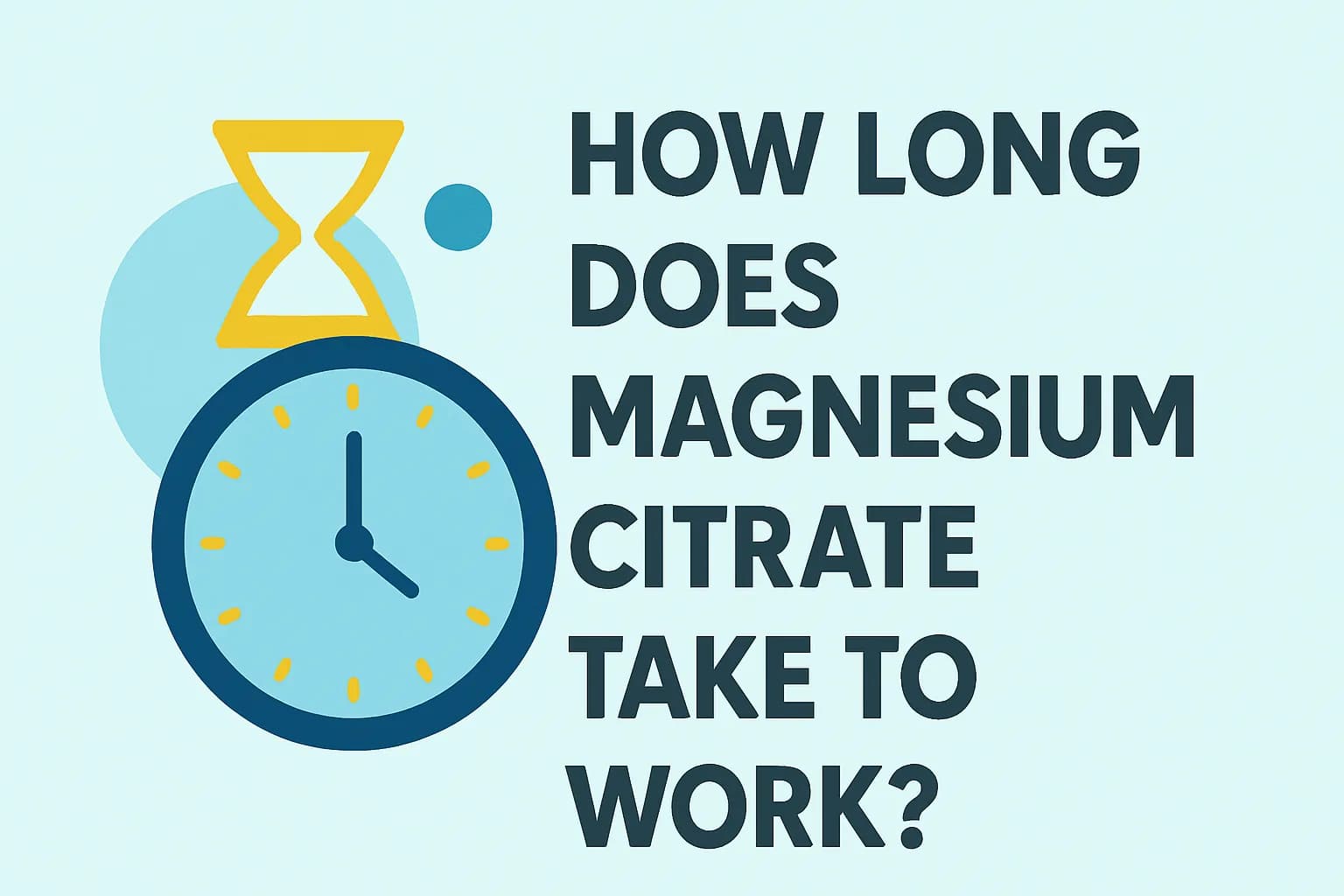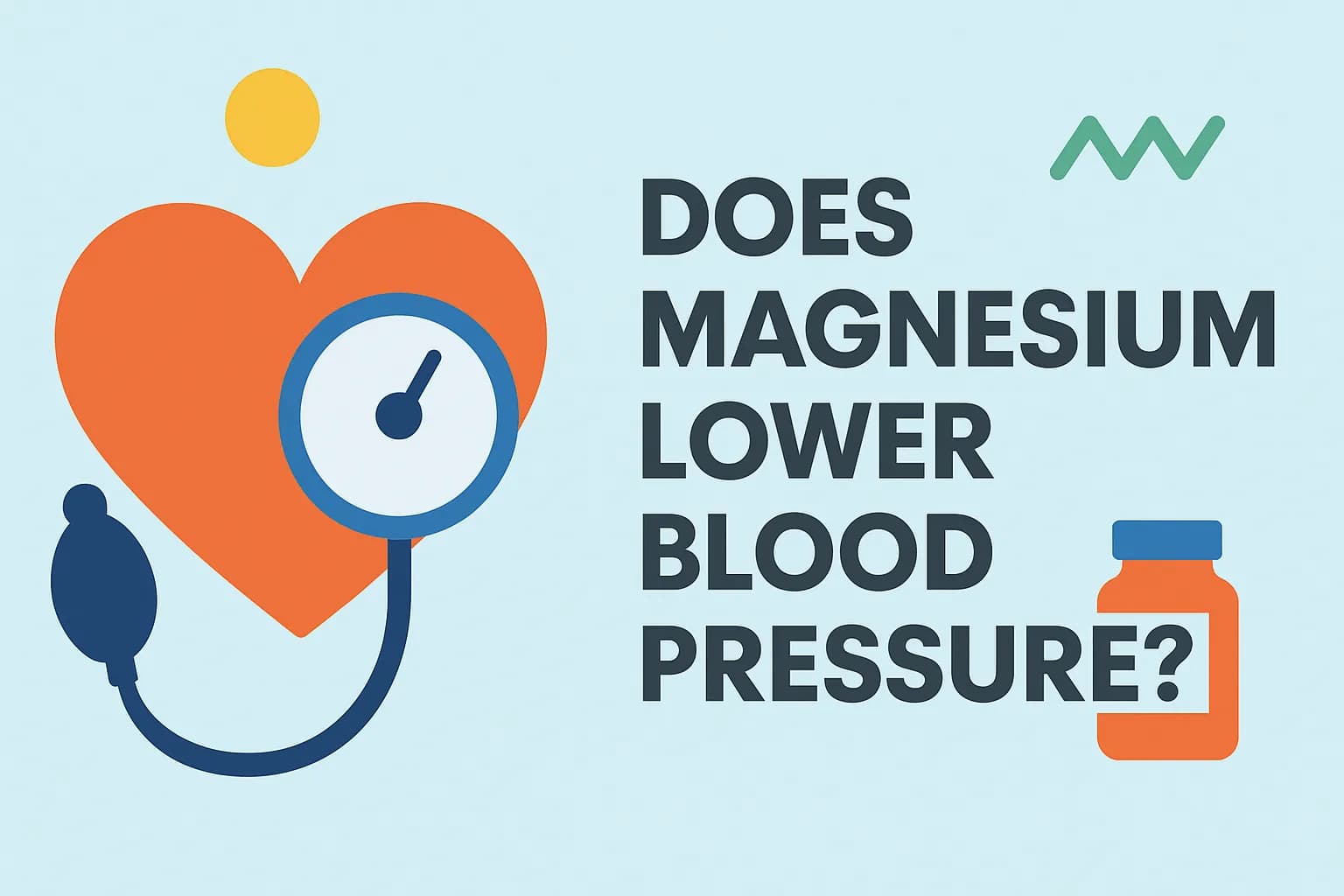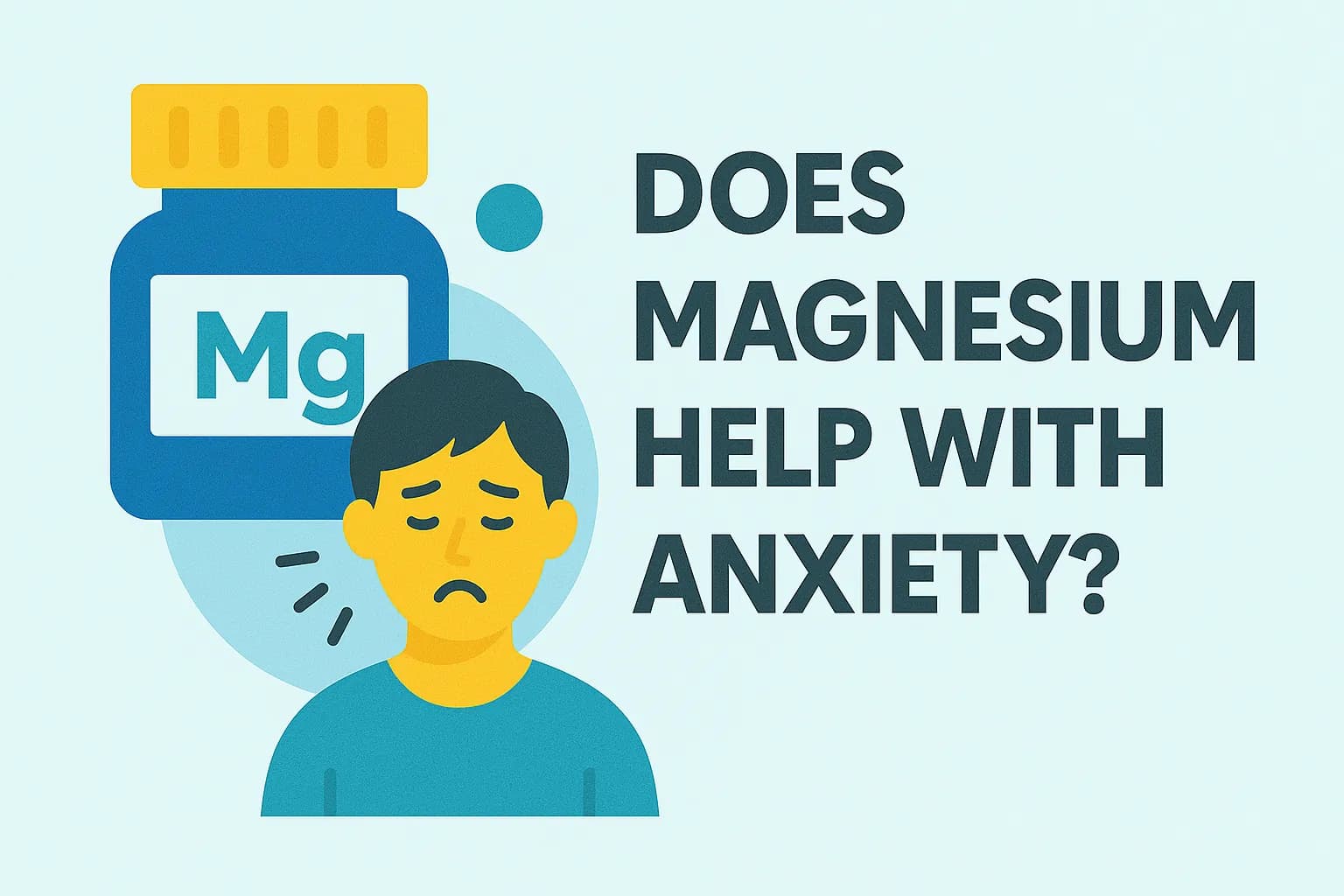Does magnesium lower blood pressure?
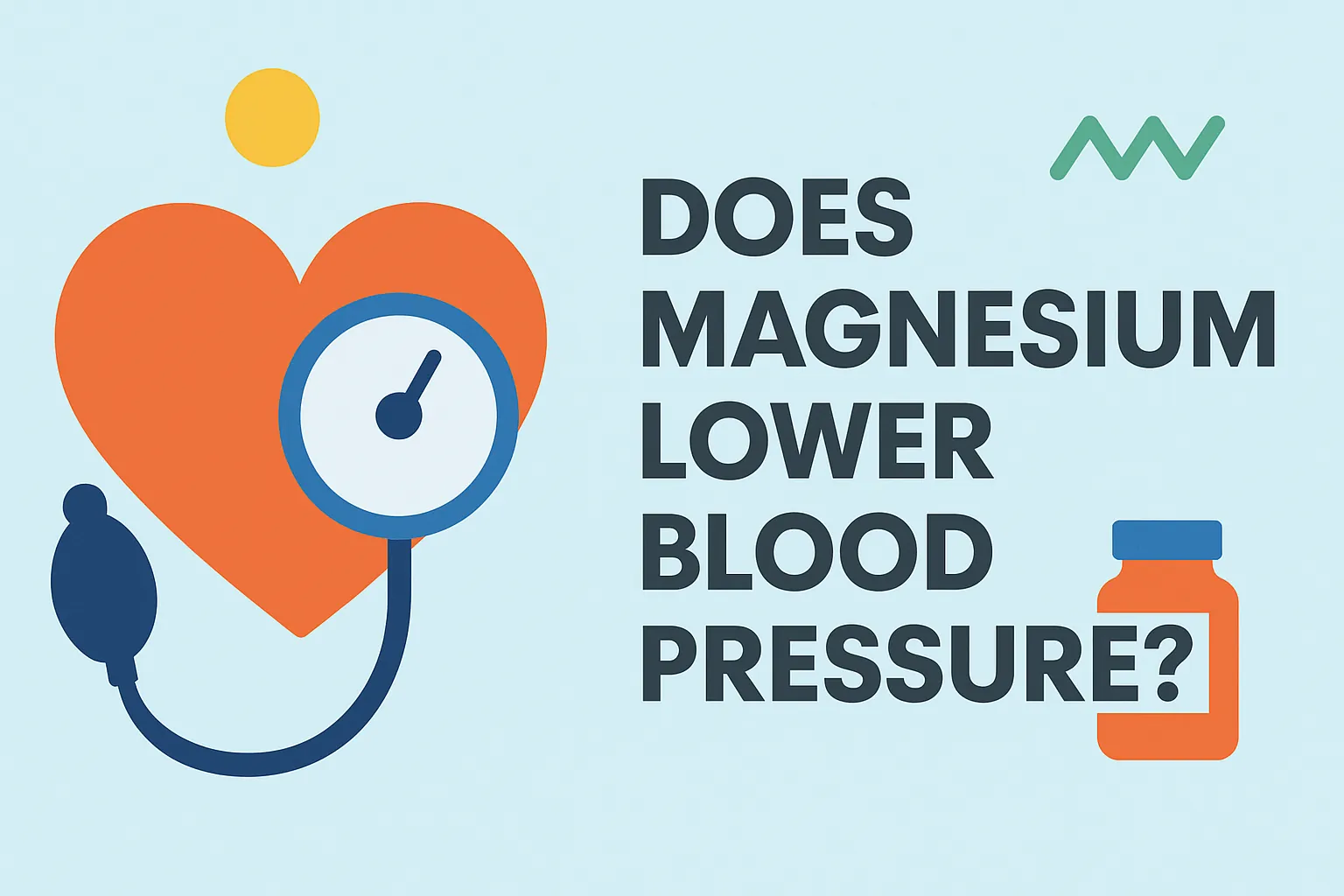
Almost half of American adults have high blood pressure (hypertension), a condition that increases the risk of heart attack, stroke, and heart failure. Many seek dietary approaches—such as increasing magnesium, vitamin D, potassium, and calcium—to help manage blood pressure.
Evidence for magnesium’s effect on blood pressure
Research results vary, but several reviews and trials suggest a modest reduction:
- Oral magnesium supplements lowered systolic by up to 5.6 mmHg and diastolic by up to 2.8 mmHg in a large meta-analysis.
- A three-month trial with 368 mg daily produced a 2.00 mmHg drop in systolic and 1.78 mmHg drop in diastolic.
- The FDA allows qualified health claims for magnesium’s role in reducing hypertension risk, noting that evidence remains inconclusive.
How magnesium may lower blood pressure
- Blocks calcium’s constrictive effect on blood vessels, keeping them relaxed
- Boosts nitric oxide production, which dilates vessels and improves circulation
- Protects vessel walls from injury and helps manage cholesterol buildup
- May enhance the effectiveness of antihypertensive medications like beta-blockers and calcium channel blockers
Best magnesium forms for hypertension
- Magnesium taurate: animal studies suggest strong blood pressure–lowering and heart-protective effects
- Magnesium citrate: raises levels effectively; also used as a laxative at higher doses
- Magnesium sulfate: known as Epsom salt, used in baths for muscle relaxation
- Magnesium oxide: lower absorption, often used for constipation or heartburn
- Magnesium glycinate: may aid anxiety and sleep alongside cardiovascular benefits
- Magnesium chloride: well absorbed, used to correct low magnesium levels
- Magnesium lactate: gentle on the stomach and well absorbed
- Magnesium malate: studied for fatigue and fibromyalgia, with limited blood pressure data
Recommended magnesium dose for blood pressure
Clinical studies indicate at least 370 mg per day is needed to observe blood pressure benefits, with doses above 600 mg yielding greater effects. Consult your healthcare provider before exceeding recommended dietary allowances.
Sources
- Houston M. The role of magnesium in hypertension and cardiovascular disease. J Clin Hypertens. 2011.
- Adebamowo SN, et al. Intakes of magnesium, potassium, and calcium and risk of stroke. Am J Clin Nutr. 2015.
- Jee SH, et al. Magnesium supplementation and blood pressure: meta-analysis. Am J Hypertens. 2002.
- NIH Office of Dietary Supplements: Magnesium fact sheet. Accessed 2024.
- Rosanoff A, et al. Oral magnesium therapy for hypertension: systematic review. Nutrients. 2021.
- Champagne CM. Magnesium in hypertension and related conditions: review. Nutr Clin Pract. 2008.



